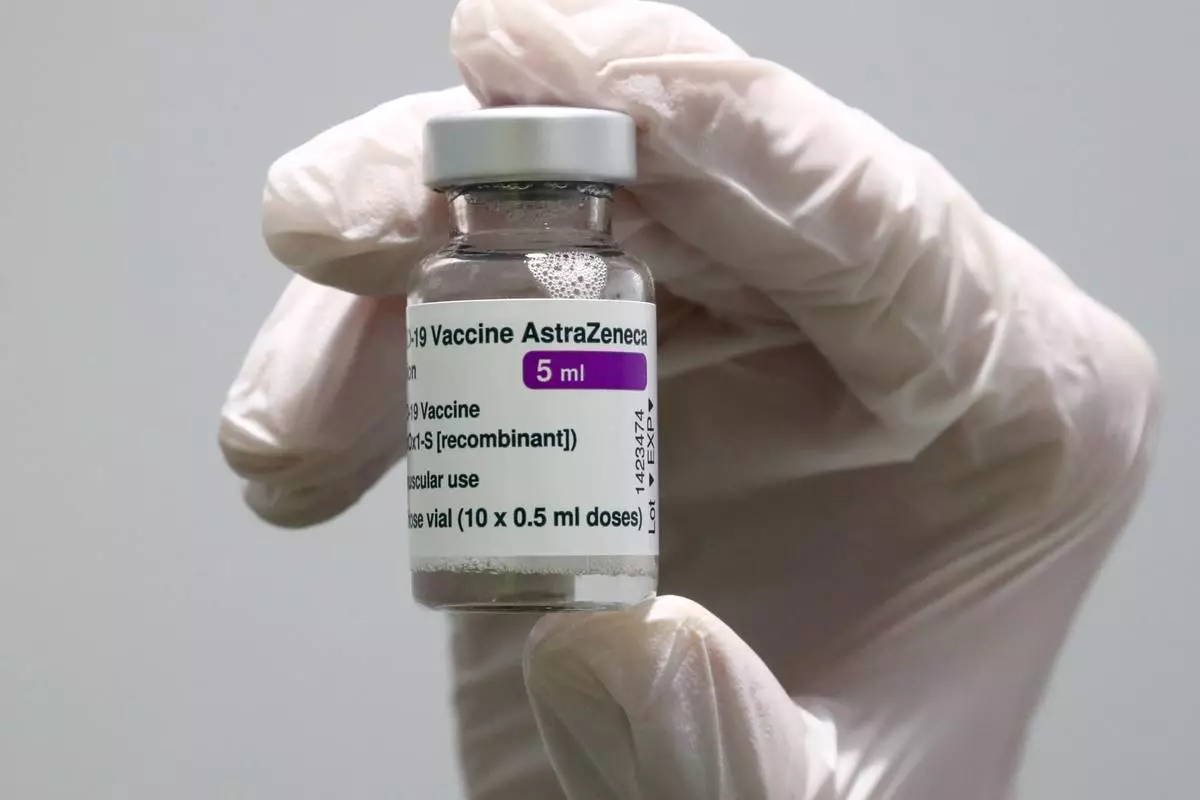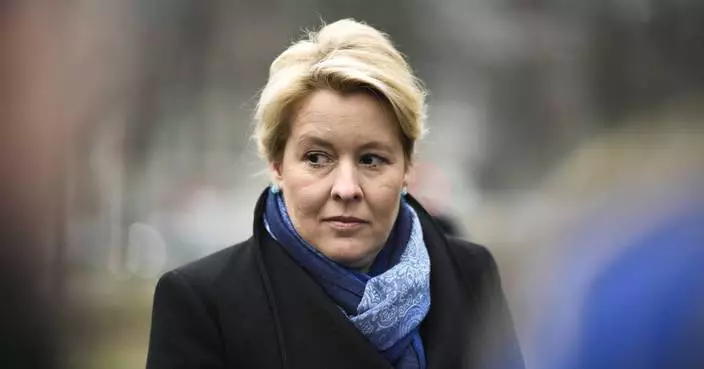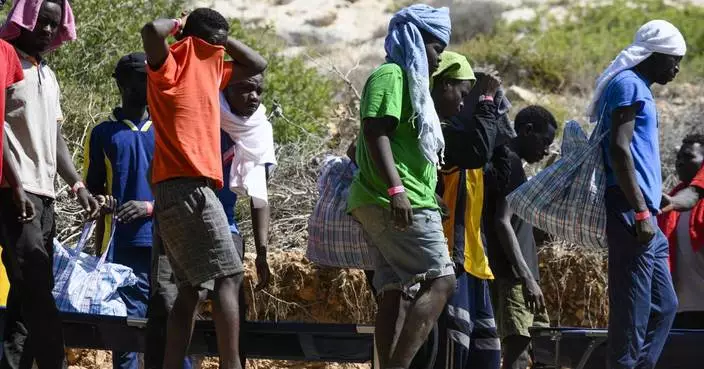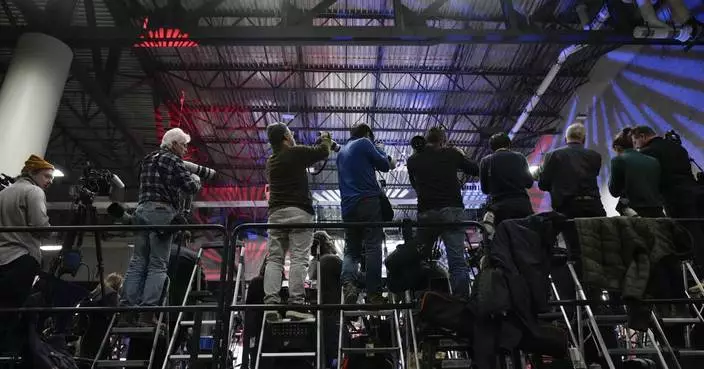Nations around the world moved Thursday to protect giraffes as an endangered species for the first time, drawing praise from conservationists and scowls from some sub-Saharan African nations.
Thursday's vote by a key committee at the World Wildlife Conference known as CITES paves the way for the measure's likely approval by its plenary next week.
The plan would regulate world trade in giraffe parts, including hides, bone carvings and meat, while stopping short of a full ban. It passed 106-21 with seven abstentions.

FILE - In this Tuesday, March 20, 2018 file photo, giraffes and zebras congregate under the shade of a tree in the afternoon in Mikumi National Park, Tanzania. An international conference on endangered species has agreed Thursday, Aug. 22, 2019, to protect giraffes for the first time, drawing praise from conservationists and scowls from some sub-Saharan African nations. (AP PhotoBen Curtis, File)
"So many people are so familiar with giraffes that they think they're abundant," said Susan Lieberman, vice president of international policy for the Wildlife Conservation Society. "And in Southern Africa, they may be doing OK, but giraffes are critically endangered."
Lieberman said giraffes were particularly at risk in parts of West, Central and East Africa.
The Wildlife Conservation Society said it was concerned about the multiple threats to giraffes that have already resulted in population decline, citing habitat loss, droughts worsened by climate change and the illegal killings and trade in giraffe body parts.

In this photo taken Jan. 1, 2015 giraffe are seen in the Kruger National Park, South Africa. An international conference on endangered species known as CITES being held in Switzerland Thursday, August 22 2019, agreed to protect giraffes for the first time, drawing praise from conservationists and scowls from some sub-Saharan African nations. (AP PhotoKevin Anderson)
The Natural Resources Defense Council, an environmental advocacy group, hailed the move, noting that giraffes are a vulnerable species facing habitat loss and population decline. A key African conservationist said it could help reverse drops in giraffe populations, as the move would help better track numbers of giraffes.
"The giraffe has experienced over 40% decline in the last 30 years, said Maina Philip Muruthi of the African Wildlife Foundation. "If that trend continues, it means that we are headed toward extinction."
Still, not all African countries supported the move.
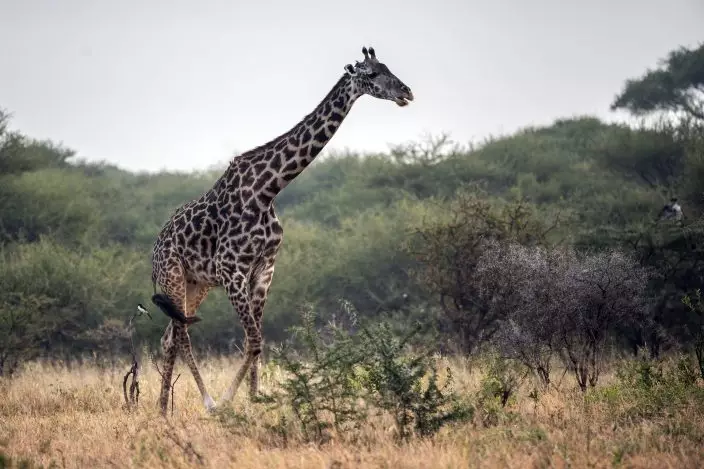
In this photograph taken Sunday July 7, 2019, a giraffe runs through Tanzania's Tarangire National Park. The CITIES World Wildlife Conference on endangered species in Geneva has agreed to protect giraffes for the first time, drawing praise from conservationists and scowls from some sub-Saharan African nations. (AP PhotoJerome Delay)
"We see no reason as to why we should support this decision, because Tanzania has a stable and increasing population of giraffes," said Maurus Msuha, director of wildlife at the Tanzanian Ministry of Natural Resources and Tourism. "Over 50% of our giraffe population is within the Serengeti ecosystem, which is well protected. Why should we then go for this?"
CITES says the population of wild giraffes is actually much smaller than that of wild African elephants.
"We're talking about a few tens of thousands of giraffes and we're talking about a few hundreds of thousands of African elephants," said Tom De Meulenaar, chief of scientific services at CITES. He said the convention was intended to specifically address the international trade in giraffes and their parts.
"With fewer giraffes than elephants in Africa, it was a no-brainer to simply regulate giraffe exports," said Tanya Sanerib, international legal director at the Center for Biological Diversity.
The U.S. is the world's biggest consumer of giraffe products, conservationists said. Sanerib said it was important for the U.S. to act on its own as well.
"It's still urgent for the Trump administration to protect these imperiled animals under the U.S. Endangered Species Act," she said in a statement.
The meeting in Geneva comes after President Donald Trump's administration last week announced plans to water down the U.S. Endangered Species Ac — a message that could echo among attendees at the CITES conference, even if the U.S. move is more about domestic policy than international trade.



